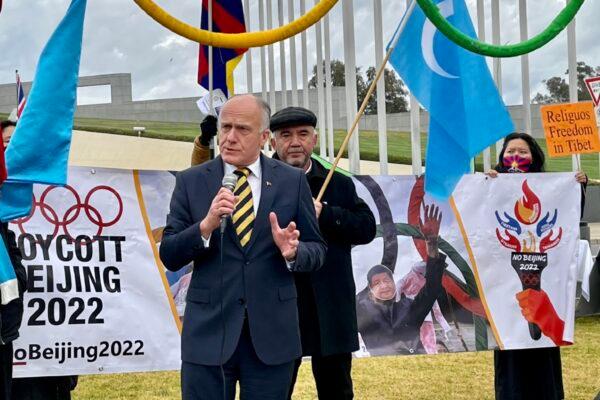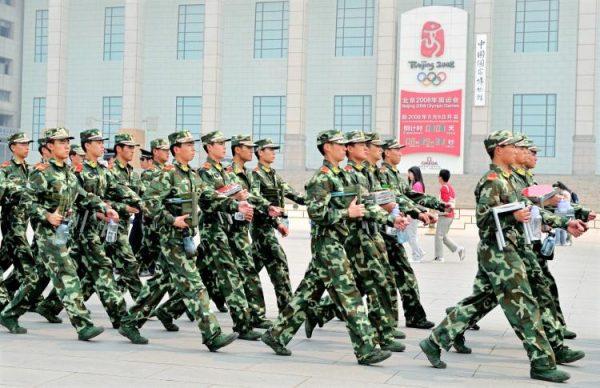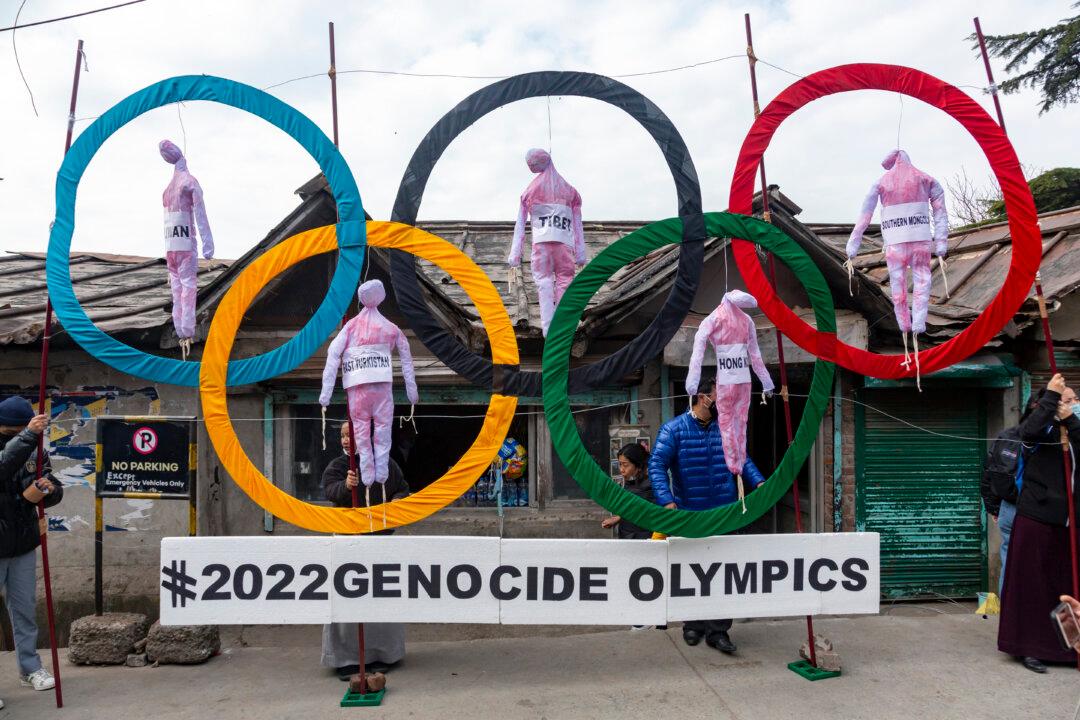A number of Australian lawmakers from across the political spectrum have written to Prime Minister Scott Morrison urging him to consider a diplomatic boycott of the 2022 Beijing Winter Olympics to protest against the Chinese Communist regime’s persecution of people of faith and democracy advocates.
“But let’s keep the diplomats, the parliamentary representatives, and dignitaries away as a show of protest to let the regime in China know that the brutal, belligerent dictatorship is completely unacceptable to our way of thinking,” he said.
The senator from the island state of Tasmania noted that hosting the Olympics brings prestige, honour, and credibility to a country and to its government or regime.

“If there is one country that is not deserving of such respect and honour and credibility, it is the communist dictatorship in China, which as we speak, has one million of its own citizens in concentration camps, namely the Uyghurs,” he said.
“There are House Christians imprisoned. There are Falun Gong practitioners imprisoned. There are Tibetans, Mongolians, pro-democracy Hong Kongers, the list goes on—all being persecuted,” Abetz said.
“I don’t think it’s right for the freedom-loving countries of the world, to simply say: ‘Nothing to be seen here. Let’s all enjoy and have a good time at an Olympics with such a regime.’”

Beijing is due to host the Winter Olympics in February 2022 but members of the Inter-Parliamentary Alliance on China (IPAC), an international network of lawmakers, say that if the International Olympic Committee can postpone the 2020 Tokyo Olympic Games over public health concerns, “it can certainly move the China games over the mass incarceration of millions in concentration camps.”
This was the view of U.S. Rep. Tom Malinowski (D-N.J.), the vice-chair of the U.S. House of Representatives Foreign Affairs Committee. In June, he said, “The International Olympic Committee should not be validating the Chinese government’s international standing while that government is committing genocide and crimes against humanity.”
U.S. House Speaker Nancy Pelosi (D-Calif.) in May also called for a U.S. diplomatic boycott, while criticizing the Chinese regime for human rights abuses and saying global leaders who attend would lose their moral authority.
“To do so discredits the ethos of the Olympic movement and undermines its purpose,” its statement read.
When launching the campaign, IPAC stated that official boycott initiatives had been announced by member lawmakers in the United States, the United Kingdom, the European Parliament, Germany, Canada, Italy, Czechia, Switzerland, Sweden, Denmark, Lithuania, and now, Australia.





